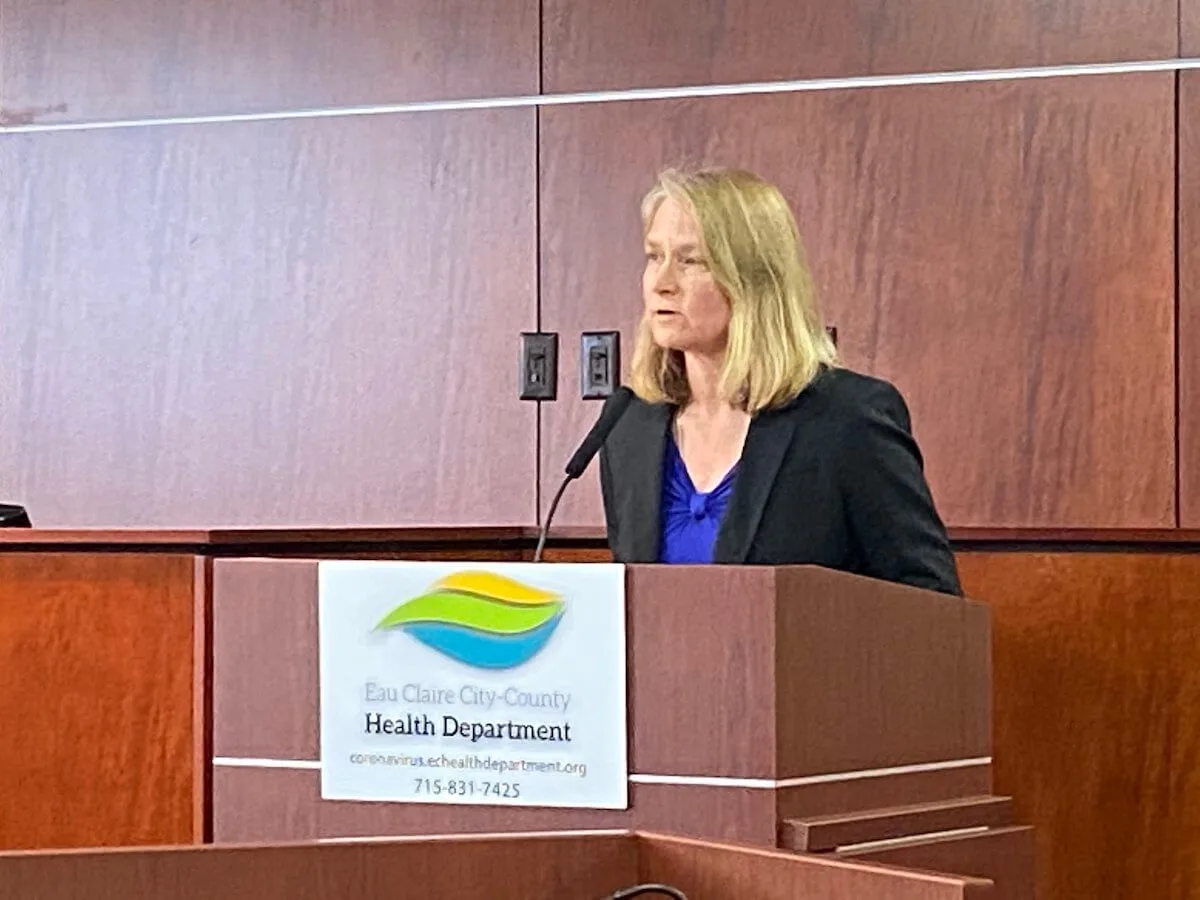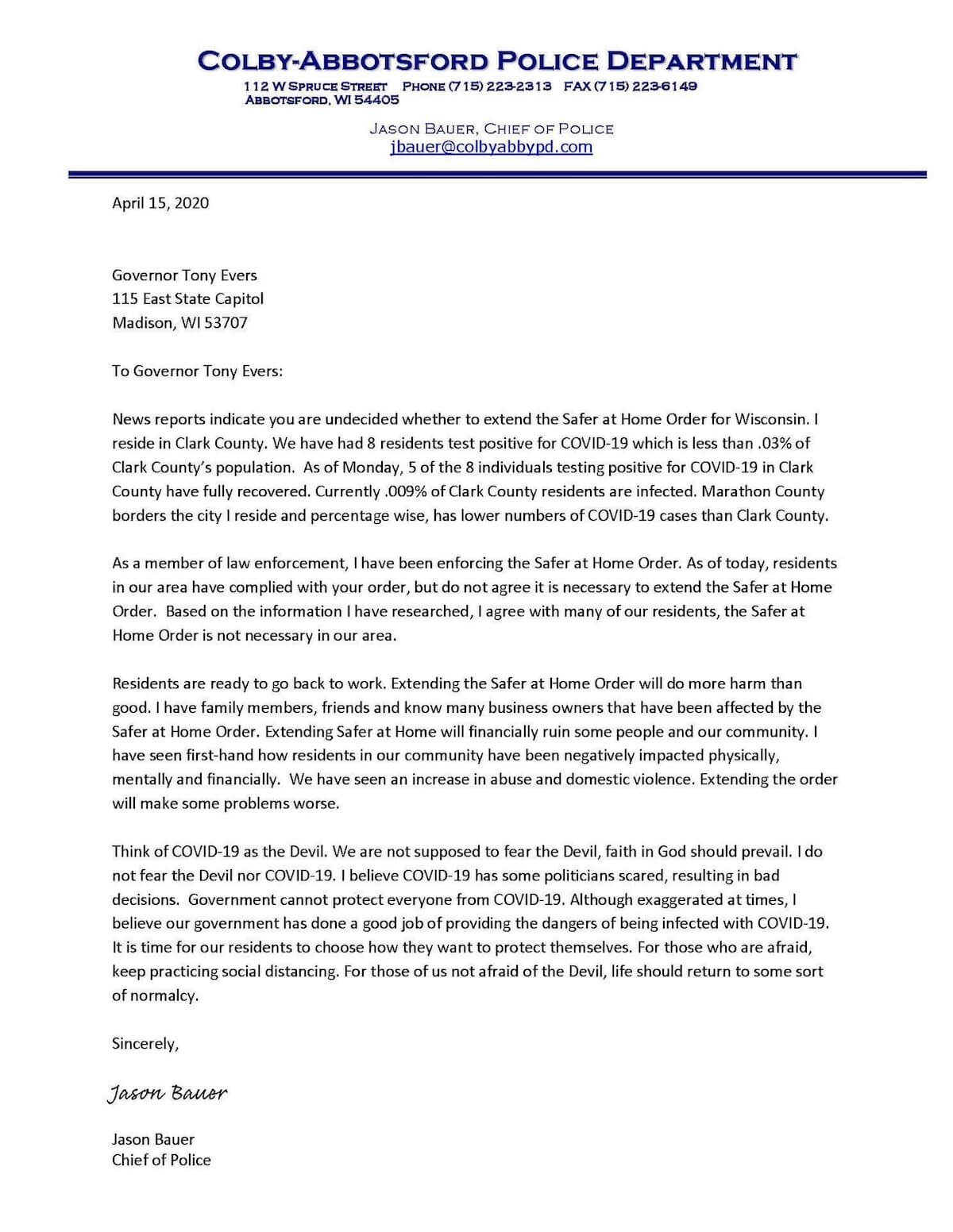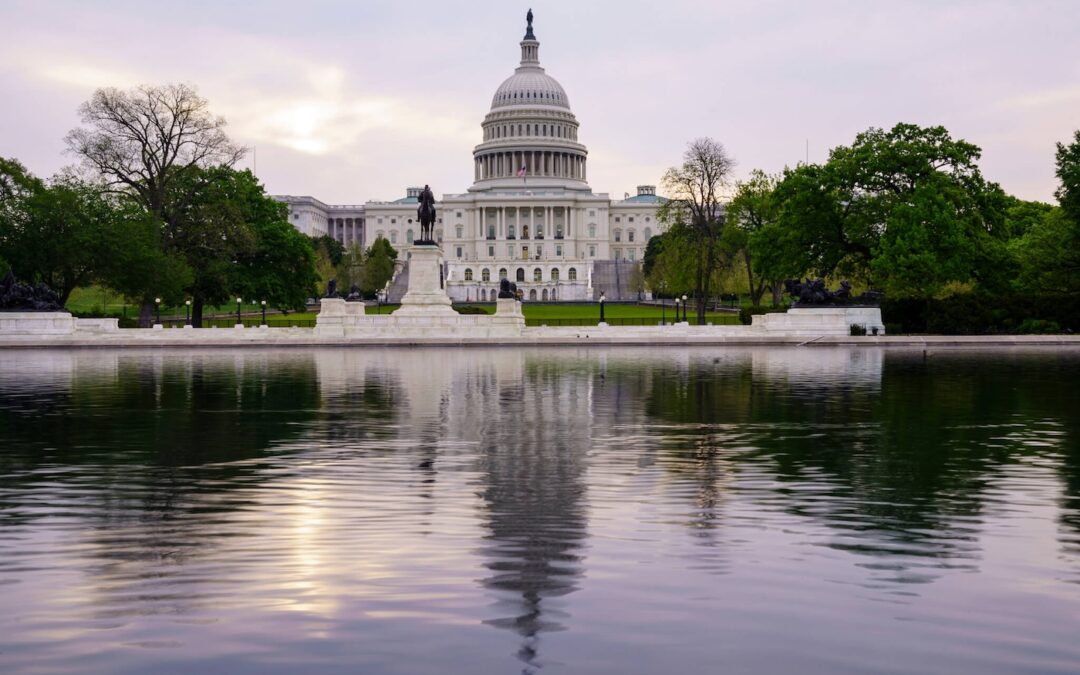
#image_title
Rural hospitals could be overwhelmed in a second wave of COVID-19
Any sign of partisan harmony during the COVID-19 crisis disappeared within hours of Gov. Tony Evers extending the stay-at-home order Thursday.
The governor’s action, intended to protect public health, resulted in residents across the state raising objections, several Republican politicians threatening to fire the health secretary, and the Republican leader of the Assembly threatening a lawsuit.
The order, issued March 25, was originally scheduled to end April 24. Evers has extended it past Memorial Day to May 26.
“We’re angry. We are frustrated and we are trying to push back in every way we can,” Assembly Speaker Robin Vos, R-Rochester said Friday during an interview with WISN-AM (1130).
Vos said he does not believe the governor has the ability to shut down the economy, adding the differences between essential and non-essential businesses appear arbitrary. He said a legal plan would be ready next week.
While Republicans ramp up opposition to Evers’ order, health officials and others said relaxing restrictions intended to limit COVID-19 cases too soon could be disastrous, prompting a surge in cases that could overwhelm the healthcare system, especially in rural areas where hospitals have limited intensive care beds and resources, health officials said Friday.
“Obviously, this is a huge inconvenience to everybody,” Polk County Health Department Director Brian Kaczmarski said. “But if we ease restrictions too soon, we could see a big spike in the number of cases. If that happens, we could overwhelm our health care system, and that would lead to deaths.”
So far measures such as the safer-at-home order, closing restaurants and taverns to inside business and ending the school year have reduced the projected number of cases and deaths in Wisconsin, state Department of Health Services Secretary-designee Andrea Palm has said. On Thursday Evers said his stay-at-home order has saved an estimated 300 to 1,400 lives.
Kaczmarski and other health department directors said those actions and social distancing practices are helping keep the number of COVID-19 cases in the state manageable.
As of Friday there had been 4,045 positive cases of the virus reported and 205 deaths, according to the state Department of Health Services.
The new figures represent an increase of 170 more cases and eight additional deaths since Thursday, a sign the disease has not stopped spreading, said Lieske Giese, Eau Claire City-County Health Department director.
“If we don’t do that, we will have a lot of people sick and a lot of people dying,” Giese said of continuing the safer at home restrictions.
COVID-19 numbers continue to climb daily, in part because of increased testing capacity, public health officials said. But the rising number of cases also is evidence that the illness has not stopped spreading, Giese and others said.
Evers said Thursday that while rural counties may have the smallest number of cases, they also have the fewest medical resources.
“One spike could close down a small rural hospital in a few days,” Evers said. “This is a statewide, comprehensive approach. We are doing it for them.”
Suzanne Peranteau is a small business owner who owns Meridian Therapeutic Massage and Body Works. She has two offices; one Madison, one in Spring Green. She said it has been challenging to figure out how to apply for and secure various loans since the public health crisis forced her to close her business a month ago.
The idea that politicians are fighting rather than finding solutions to ease the process for small businesses owners like her is infuriating.
“It would be great if they could do their jobs instead of making all these power plays,” said Peranteau. “All their efforts are going toward making Evers look incompetent. It’s obstructionism and it’s not benefiting anyone.”
‘Considerable frustrations’
However, others across the state said they disagree with the need to continue to stay home. Doing so doesn’t seem necessary, some people said, especially in rural areas where not many positive COVID-19 cases have been reported.
Seven counties with relatively small populations don’t yet have one recorded case of the virus. Another 38 counties have reported fewer than 10 positive cases.
“I think this whole thing is a big overreaction,” said Tricia Olson, who lives in Wood County, where 27 people have tested positive for COVID-19. “We’re hurting people’s lives, shutting down businesses and wrecking our economy. And this virus isn’t so bad that we should be doing that.”
Marathon County resident Larry Pabst said Evers’ order is an example of government “stepping in where it doesn’t belong.”
State residents, and not government officials, should decide whether they can go to work or attend gatherings, he said.
“I don’t think anyone should be able to tell me where I can and can’t go,” he said.
Trempealeau County resident Jon Schultz said many people are upset by the extension of stay-at-home rules. He agrees with the restrictions in general, he said, but wishes “less-severe” measures implemented on a regional basis instead of a one-size-fits-all statewide model would have been implemented two months ago.
“I’ve certainly seen considerable frustrations being expressed,” he said. “For some it’s politically charged bipartisan anger. For others it’s declining patience to see progress on planning, testing and PPE availability.”
At least two local law enforcement officials have raised objections to Evers extending the order.
Colby-Abbotsford Police Chief Jason Bauer mentioned the devil and his faith in God in a letter to Evers he posted on Facebook asking that the order be lifted in central Wisconsin.
“Think of COVID-19 as the Devil,” Bauer’s Facebook post states. “We are not supposed to fear the Devil, faith in God should prevail.”

Likewise, Racine County Sheriff Christopher Schmaling said in a letter he refuses to enforce the order, which he called “an overreach.” Racine County had 168 cases as of Sunday, the sixth-highest number in Wisconsin. The number of infections there is rising rapidly.
Giese acknowledged difficulties people and businesses face with the continuance of “Safer at Home” rules. Like others, she looks forward to the day when she can once again gather with friends and family, when she can attend public events.
But before that happens, more time is needed for the number of new cases to drop, she said. Additional testing capacity to better track COVID-19 cases also is needed, especially as people begin congregating again, she said.
The virus that can cause pneumonia-like symptoms and be fatal is especially dangerous, she said, because it is especially contagious and there is no vaccine to protect against it.
“We will open up our society again, she said, “but we have to do that strategically, do it in phases. We must do it in a slow, measured way to make sure we are safe.”
Jessica VanEgeren contributed to this report.
Correction: There were 168 confirmed cases in Racine County as of Sunday.

Wisconsin will get hit hardest from Trump’s trade war, analysis shows
The other 49 states have between 1% to 8% of their labor force working in industries getting hit by retaliatory tariffs. Nearly 10% of the Wisconsin...

Opinion: New year, new priorities from Congress? Or more of the same?
Opportunity Wisconsin calls on the state’s Republican Congressional delegation to prioritize Wisconsin families in 2025, though their record casts...

Sick of hidden fees on concert tickets and hotel stays? A new federal rule bans them.
Now, live event businesses and hotels must clearly list their prices in both their advertising and pricing information. American consumers on...

Opinion: I asked Congressman Bryan Steil to fight for fair taxes. Will he listen?
A Wisconsin advocate shares her experience advocating for fair taxes during her visit to Washington, DC. Recently, I had the opportunity to join...




